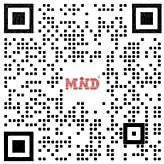The market for radio frequency identification (RFID) solutions is growing, thanks in large part to its ability to help the healthcare industry automate data capture and asset tracking throughout the hospital environment. As the deployment of RFID solutions in large medical facilities continues to increase,some pharmacies are also seeing the benefits of using it. Steve Wenger, manager of inpatient pharmacy at Rady Children’s Hospital, a well-known children’s hospital in the United States, said that changing the drug packaging to vials with RFID tags directly pre-affixed by the manufacturer has saved his team a lot of cost and labor time, while also bringing extraordinary profits.
Previously, we could only do data inventory through manual labeling, which took a lot of time and effort to code, followed by validation of the drug data.
We have been doing this every day for many years, so we hope to have a new technology to replace the complex and tedious inventory process, RFID, it has completely saved us.”
Using electronic labels, all necessary product information (expiration date, batch and serial numbers) can be read directly from the embedded label on the drug label. This is such a valuable practice for us because it not only saves us time, but also prevents information from being miscounted, which can lead to medical safety issues.
These techniques are also a boon for busy anesthesiologists in hospitals, which also saves them a lot of time. Anesthesiologists can receive a medicine tray with what they need before surgery. When in use, the anesthesiologist does not need to scan any barcodes. When the medicine is taken out, the tray will automatically read the medicine with the RFID tag. If it is not used after taking it out, the tray will also read and record the information after the device is put back in, and the anesthesiologist does not need to make any records throughout the operation.
Post time: May-05-2022







